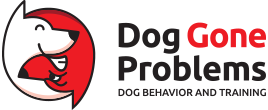Helping Noodles Calm Down By Adding Rules and Structure
By: David Codr
Published Date: April 21, 2014

As soon as I met Noodles, he was jumping up on me, sticking his nose in my bag and basically showing no respect for my personal space. I immediately adopted my preferred method of communicating that jumping up results in the dog losing control of the situation. It took five solid corrections before Noodles finally “got it.” But once he did, he stooped jumping up on me for the rest of the session.
Because potty training was the reason I was called in I went over the times a dog is more likely to need to “go,” as well as some suggested changed to his feeding routine to help his owner know the times he is going to need to eliminate.
While some of Noodles accidents can be attributed to his being only four months old, the lack of any rules or boundaries in his life were equally to blame. In a pack setting dogs thrive on strong, clear leadership that communicates what is and is not allowed. Because his owner didn’t have any rules in place, Noodles assumed he could do anything he wanted.
I suggested a number of rules to adopt. Rules that only require a small change to how the human feeds or interacts with the dog can have a big impact. By requiring the dog to sit as a way of asking for attention, we can help the dog see itself as subordinate to the humans in the home.
Next I went over a leadership exercise to help Noodles learn to calm down, focus and develop the ability to self-restrain. It only took a couple repetitions of the exercise before Noodles understood and surrendered to it. By the time he did, his focus was crisp and his energy level had dropped considerably. I suggested his owner repeat the exercise daily to help the pup see his owner as an authority figure and develop the ability to develop impulse control.
I suggested that his owner start walking him daily and to also consider agility training. Australian Shepard’s are usually very intelligent and high energy dogs who can get into trouble without a constructive way to release their energy. Running and playing in the back yard help, but not as much as a human taking a leadership role on a structured walk.
By the end of the session, Noodles was considerably calmer, respectful of people’s commands and personal space and paying closer attention to his owner. By adding rules and boundaries into the dog’s day to day life, we can help stop unwanted behaviors before they start. Based on how quickly Noodles behavior changed in the session, it shouldn’t take his over longer than a few weeks before the new energy and behavior are permanent.
Categorized in: Dog Behavior, Dog Psychology, Dog Training Omaha, Omaha dog training

